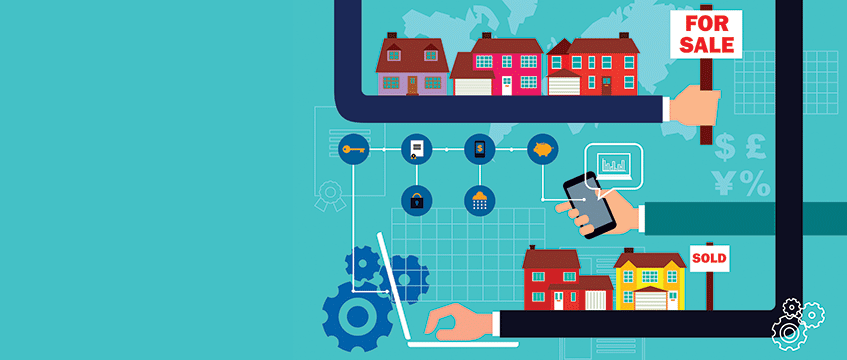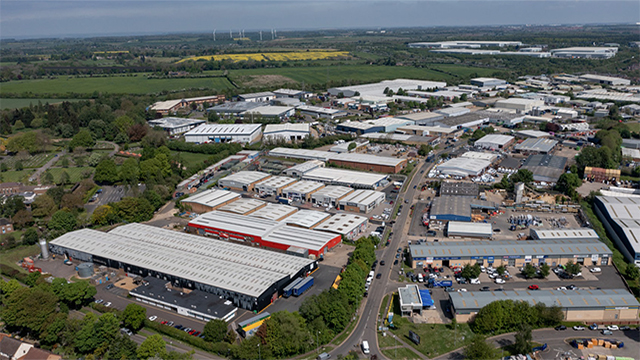Online property auctions can’t be driven the Uber way
It was the fallout of the 2008 financial crash that sparked the emergence of online property auctions.
The conditions were just right. Owners were struggling to sell stock to a market in freefall and more properties were being pushed into auction rooms.
BidX1 says it saw the potential for digital auctions and set about launching an online platform in 2015. But as the company’s head of UK residential auctions, Richard Watson explains, property has “been particularly lagging” when it comes to digital.
It was the fallout of the 2008 financial crash that sparked the emergence of online property auctions.
The conditions were just right. Owners were struggling to sell stock to a market in freefall and more properties were being pushed into auction rooms.
BidX1 says it saw the potential for digital auctions and set about launching an online platform in 2015. But as the company’s head of UK residential auctions, Richard Watson explains, property has “been particularly lagging” when it comes to digital.
The opportunity to sell online has been possible for nearly a quarter of a century. EBay, the godfather of the online auctions model, was founded in 1995, and now has more than 182m active users of the digital marketplace.
So why, as eBay celebrates its 25th birthday, is the online property auction world only beginning to gain traction?
‘No need to change’
Watson thinks that property has not yet been disrupted to the point where adopting an online auctions model is unavoidable – and essential.
He cites Uber as an analogy. Before the online taxi-booking service took off, cab drivers would drive around London waiting to be hailed. But, as Watson says, cab drivers had no real reason to change their ways.
“I’m sure black cabs were approached all the time by tech people saying: ‘We could do this better for you; your drivers are driving around spending petrol money and time in the hope of finding somebody, but we can connect them to you’,” he says. “But they just did not need to change.”
Uber, however, completely shook this market up, with taxi firms facing the choice of either adapting to the change or falling behind.
Watson believes the same applies to property. The industry has not yet been forced into radical change
and is resisting having to embrace new technologies, adopting the same mindset that taxi drivers before Uber held: if the business model isn’t broken, then why fix it?
More than bricks and mortar
For Bamboo Auctions founder and chief executive Robin Rathore, however, the property auction sector faces more significant challenges than most other industries in bringing its business model online.
He thinks the slow take-off in the online auctions arena comes down to the kind of product it is trading: selling and buying a house is much more complex than simply bidding for a pair of shoes.
“With property, there’s quite robust legal infrastructure that underpins it,” says Rathore. “So, if you want to sell a house, you have to go through a number of steps to actually sell the property. That means getting legal packs together, making sure that it’s all watertight and actually making sure that the sale goes through.
“It’s fairly simple to sell a tennis racket. There’s no legislation on how to sell tennis rackets. There’s plenty of plenty of legislation around how you should not sell real estate,” he says.
To bring the auctions model online successfully, a way of standardising the legal process behind buying and selling real estate needs to be found.
There is also the “human element” of buying and selling a home to consider, Rathore adds. He says there are some parts of the process that cannot be replaced with technology, which has prevented online auctions from blossoming.
“Property is personal,” he says. “Property is not just bricks and mortar. It carries all sorts of other emotions and feelings with it. You get attached to the actual building, so if you are selling it, you want to make sure you are doing it in the right way.”
Service not process
According to Essential Information Group, the number of lots sold across the country in the year to the end of May 2019 fell by 10.9% with the total amount raised during the year falling by 14.8% to £3.8bn.
So should auctioneers be focused on boosting sales in the ballroom before attempting to digitise this process?
For Allsop commercial auction partner George Walker, it is about delivering a service not a process.
“The market is difficult and volumes are down year on year,” he says. “To get sales done requires a lot of knowledge and experience of the market, and frankly the sellers don’t care whether it is a ballroom or digital method that gets the sale done.
“At this stage in the evolutionary process, the combination of the two seems to work best for the clients who are selling the properties – and that is ultimately who us auctioneers are working for.”
Benefits of online auctions
Bringing the auctions model online could, however, see companies bring in new business. Bamboo Auctions says it has tapped into a new customer demographic, having noticed a spike in the number of women using its platform.
“50% of all our buyers online are women,” Rathore says. “And that is an entirely untapped market. It is a struggle to get even 50 women in a ballroom auction.”
Online auctions also provide greater flexibility for customers who may not have time, or even want to attend ballroom auctions, says BidX1’s Watson. “People have been very happy on phones, bidding overseas in restaurants abroad.”
He has noticed an increasing number of customers retreating behind their screens to bid but adds that the human element still plays a critical part in the process.
“People want you there when they’ve got questions; they want to be able to have this kind of interaction,” he says. “People phone up and ask for advice and recommendations and I suspect they want the comfort that they can speak to someone to get to the core of the issue very quickly. But on the whole, they want to have control over their own behaviour.”
Future of auctions
Rathore believes online auctions will eventually become a mainstream method of sale. “Our estimation is that it will hit somewhere in the region of 15% of the total property market in terms of number of property sales per year,” he says.
But despite this boom in online auction sales, most auctioneers – digital and ballroom-based – believe there is still a place for traditional methods of sale.
“I don’t think it is going to replace any other method of sale; there’s always going to be room for all of the others,” says Rathore. “It is going to provide a third way of selling the property. And that’s the important thing. It’s about giving buyers and sellers a choice.”











